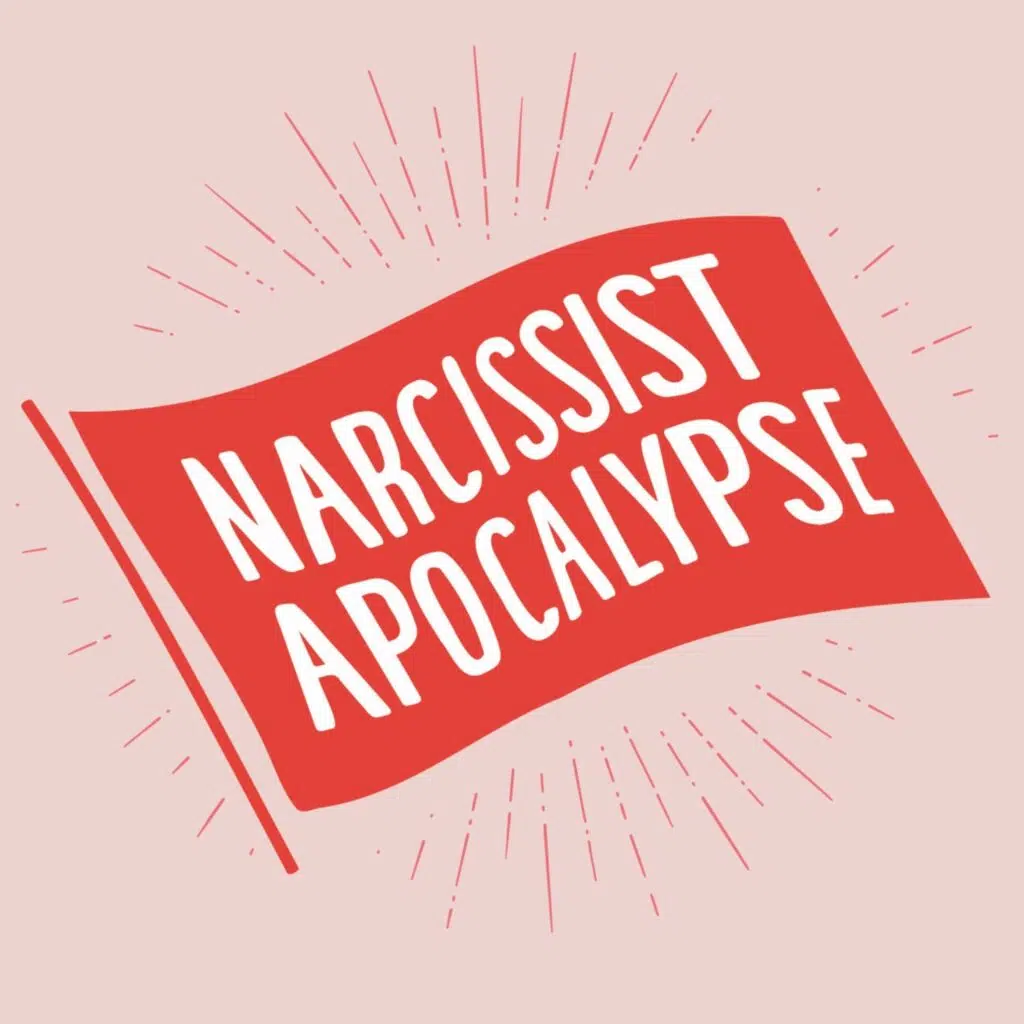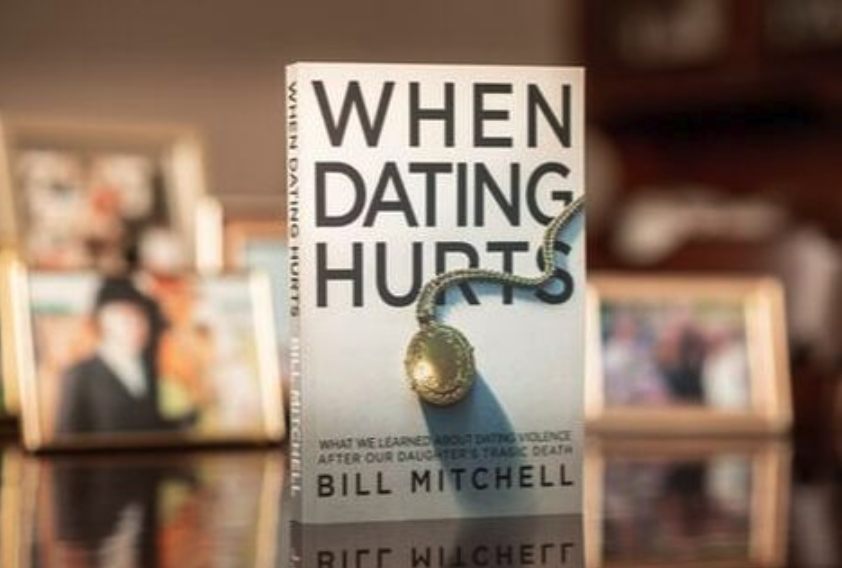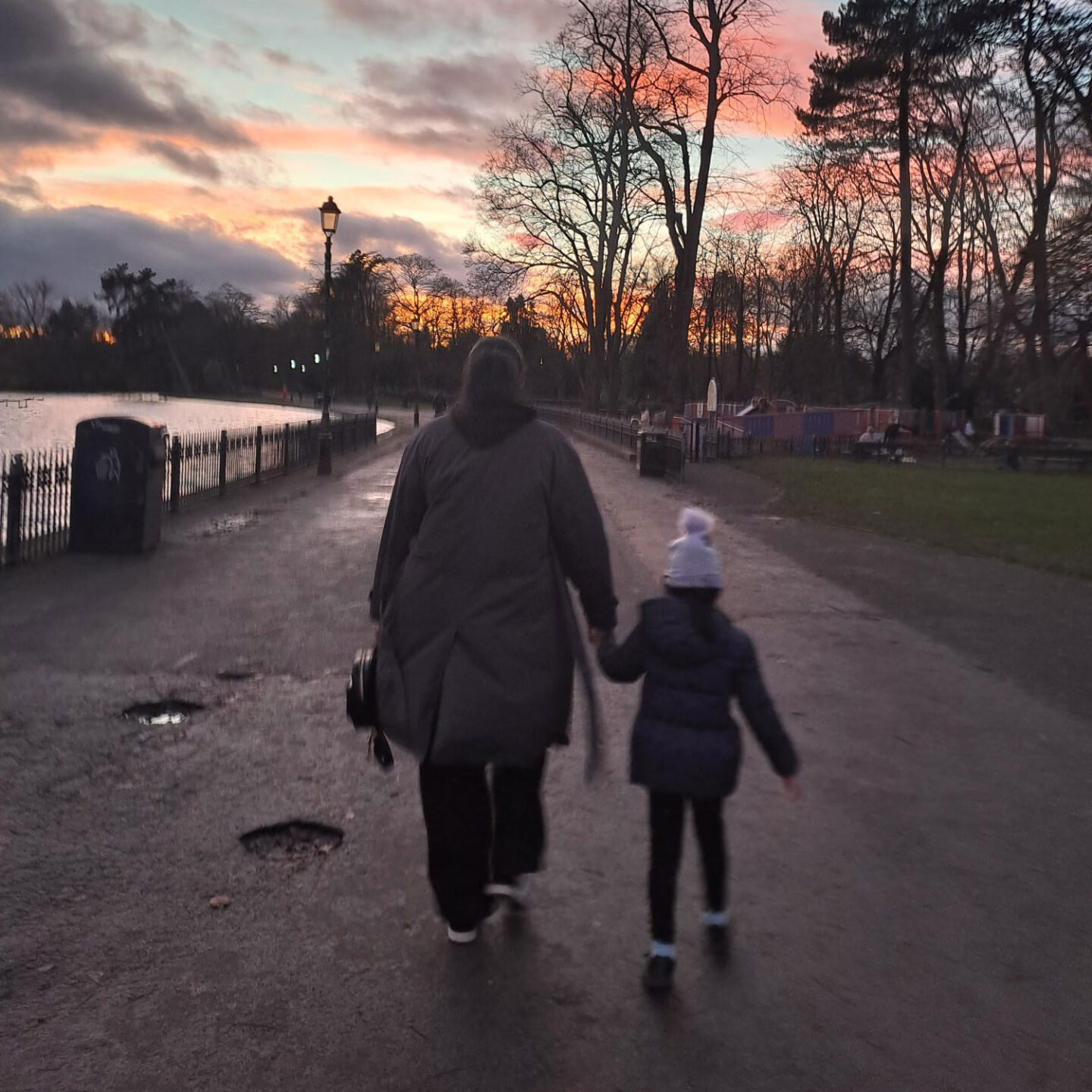What two powerful podcasts have taught me about domestic abuse
Hi, I’m Chelsey, and I work at Gilgal. Every day, I support women navigating the devastating realities of domestic abuse.
In order to better support the women I work with, I’ve found that listening to survivors’ stories through podcasts is incredibly powerful, as they offer insights and lived experiences that formal training alone can’t always provide. Two podcasts in particular, Narcissist Apocalypse and When Dating Hurts, have profoundly shaped my understanding of abuse, healing, and how best to respond to survivors.

Narcissist Apocalypse is hosted by Brandon Chadwick, who experienced abuse from his narcissist father. He’s since created a space for others to share their deeply personal stories of abuse, whether from family members, intimate partners, or others in their lives. Since launching the show in 2019, Brandon has interviewed hundreds of survivors and has earned critical acclaim for elevating their voices. In addition to his podcast, Brandon also runs weekly support groups for survivors of narcissistic abuse. The podcast is informative and heartbreaking, but also manages to be unexpectedly light and entertaining, offering a balance that keeps you engaged while tackling serious topics.
What sets this podcast apart is the inclusion of expert interviews. Lawyers, therapists, trauma specialists, and other domestic abuse professionals share crucial advice for survivors and those who support them. Listening to these episodes has helped me understand the nuanced ways abuse can manifest and continue long after the relationship has ended. It’s also been incredibly useful in informing my strategies when working with women at the refuge to help them stay safe during or when leaving an abusive situation.
Brandon does an excellent job of breaking down narcissism and narcissistic abuse, which is especially important in a society where these terms are often overused or misunderstood. Narcissists typically lack empathy, crave control or admiration, and have an inflated sense of self. Some are easy to spot – loud, arrogant, and attention-seeking. However, others are much harder to recognise. These covert narcissists may seem insecure, self-pitying, or even overly generous, making their manipulation less obvious until the victim has become emotionally bonded to them. Brandon’s clear explanations help listeners identify the real patterns of narcissistic abuse, offering invaluable clarity when supporting survivors through toxic dynamics. A sobering truth he highlights is that narcissists rarely change; instead, they continue to use others as sources of validation – known as “narcissistic supply” – and their abuse often escalates over time. Understanding this helps survivors break free from the cycle of abuse.

The second podcast that I recommend is When Dating Hurts, hosted by Bill Mitchell. Bill found himself wanting to help others suffering from domestic abuse after the unimaginable tragedy of losing his daughter, Kristin, who was murdered by her boyfriend just weeks after graduating from university. With the new information he has learned, Bill can look back and recognise the subtle red flags that, at the time, his daughter’s loved ones had not seen.
In addition to his podcast, he advocates through talks – particularly at schools – and his book, also titled When Dating Hurts. What both the podcast and the book drive home is that domestic abuse does not discriminate. It crosses all lines – socioeconomic status, gender, religion, ethnicity. It can happen to anyone.
This podcast also features survivor stories and expert insights, helping to demystify abusive dynamics. One major takeaway for me is how important it is for victims to hear others’ stories. Bill’s vulnerability and determination to raise awareness are deeply moving. It can be incredibly inspiring to hear from people who have faced situations as devastating as your own and have made it through to the other side. These narratives reduce isolation, combat shame, and challenge the dangerous belief that abuse is the victim’s fault for not leaving. In truth, the blame belongs solely with the perpetrator.
For anyone supporting a loved one in an abusive relationship, these podcasts can be a life-changing resource. They offer insight into why someone may not be ready (or able) to leave, how to spot signs of abuse, and how best to support someone through their journey to safety and healing. It can be frustrating to support a loved one who keeps returning to their abusive partner, but when you have a better understanding of what an abusive relationship can be like, it becomes easier to empathise with and support your loved one without judgment, ensuring they know you are there with them every step of the way.
Personally, I’ve learned so much from these podcasts. From practical tools and resources to deeper emotional understanding, the knowledge I’ve gained has made me a better advocate for the women I work with. I highly recommend Narcissist Apocalypse and When Dating Hurts to victims, survivors, loved ones, and professionals alike. They show that no matter how dark the situation may seem, there is always hope and help available.


